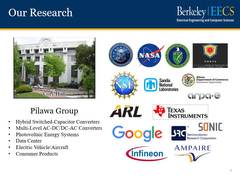A Synchronous Boot-strapping Technique with Increased On-time and Improved Efficiency for High-side Gate-drive Power Delivery

Start Time:2021-08-27 11:00 (Asia/Shanghai)
Duration:15min
Session:[Room2] Oral Session 2 » [S5&S6] WBG Device Design and Gate Drivers
Tips: The file permissions under this presentation are only for participants. You have not logged in yet and cannot view it temporarily.
Abstract
Keywords
Speaker
Nathan Miles Ellis
Post-doctoral University of California BerkeleyNathan Miles Ellis received the B.S. degree in Electrical and Electronic Engineering from the University College Cork, Ireland, in 2013, and the M.S. and Ph.D degrees in Electrical and Computer Engineering from the University of California, Davis in 2017 and 2020 respectively. During this time he was funded in part by both Texas Instruments and the U.S. Dept. Of Education in recognition of research excellence in areas of national need (GAANN). In 2017 UC Davis’ Industrial Affiliates named him Best Graduate Researcher, and at the 2020 International Solid-State Circuits Conference (ISSCC) he received the title of Analog Devices Outstanding Student Designer. His research interests include Mixed Signal Integrated Circuit Design, Energy Harvesting, Renewable Energy Integration, Control, Biomedical Devices, and spans several topics in high performance power converter design, including; Hybridized Switched-Capacitor Power Converters, Multi-Level Converters, Adiabatic Gate-Drives, and a number of related advanced converter techniques. He is currently a Post-Doctoral Researcher at the University of California, Berkeley within the Department of Electrical Engineering and Computer Sciences.






Comment submit